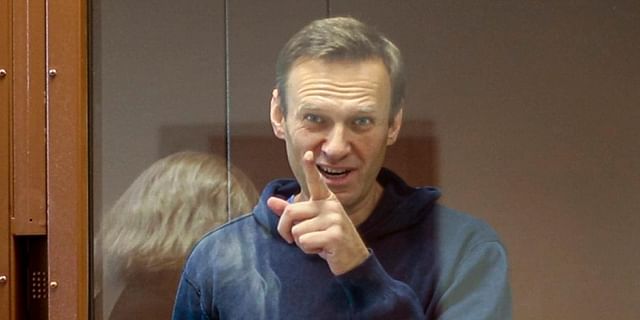 MOSCOW: Russian authorities have opened a criminal case against imprisoned opposition leader Alexei Navalny and his closest allies, accusing them Tuesday of forming an extremist group and involvement in one.
MOSCOW: Russian authorities have opened a criminal case against imprisoned opposition leader Alexei Navalny and his closest allies, accusing them Tuesday of forming an extremist group and involvement in one.
The investigation is the latest step in a multi-pronged crackdown on the Kremlin’s most ardent foe and his team.
Russia’s Investigative Committee said in a statement that it was investigating Navalny and his top allies, Leonid Volkov and Ivan Zhdanov, for creating and leading an extremist group — a criminal offense punishable by up to 10 years in prison.
Several other close associates of the politician, including Lyubov Sobol, Georgy Alburov, and Ruslan Shaveddinov, are under investigation for potential charges of participating in an extremist group, the statement said.
If convicted, they would face up to six years in prison.
The Investigative Committee alleged that Navalny and his allies founded the Foundation for Fighting Corruption, set up a wide network of regional offices, and launched websites, social media pages and YouTube channels with the goal of “discrediting the authorities and their policies, destabilising the situation in the regions, igniting a protest sentiment among the population and forming public opinion about the need for a violent overthrow of power.”
Navalny’s associates described the new probe as part of the crackdown that took place in the months before Russia’s parliamentary election on Sunday.
.
“Really, it’s a postcard for everyone who thought that after the election the insanity of the security forces would stop. No, it wouldn’t,” Sobol said on Twitter.
Navalny and his team have faced unprecedented pressure ever since the politician’s return in Janaury from Germany, where he spent five months recovering from a nerve agent poisoning he blames on the Kremlin.
Russian authorities deny the accusation.
Navalny was arrested upon landing in Moscow and ordered to serve 2½ years in prison for violating parole from a previous conviction he says is politically motivated.
After his arrest produced a wave of mass protests all across Russia’s 11 time zones, Russian authorities brought multiple criminal charges against Navalny’s allies.
Some endured house arrests, while others left the country.
In June, a court in Moscow labeled Navalny’s Foundation for Fighting Corruption and his network of regional offices extremist groups, a ruling that exposed his associates and supporters to prosecution and potentially lengthy prison terms.
Russian lawmakers have also rubberstamped a law barring those associated with the groups from running for public office.
In the run-up to the election, authorities blocked nearly 50 websites run by Navalny’s allies and pressured Apple and Google to remove from their online stores an app Navalny’s team created.
“Everyone has been asking, whether the pressure would ease after the election. Here’s the answer. A week after the election – a new criminal case against Navalny, Volkov, Zhdanov, Sobol, Alburov, Shaveddinov,” Navalny’s spokeswoman Kira Yarmysh said on Twitter.
“This is the fourth criminal case launched against Alexei while he’s in prison.”
























